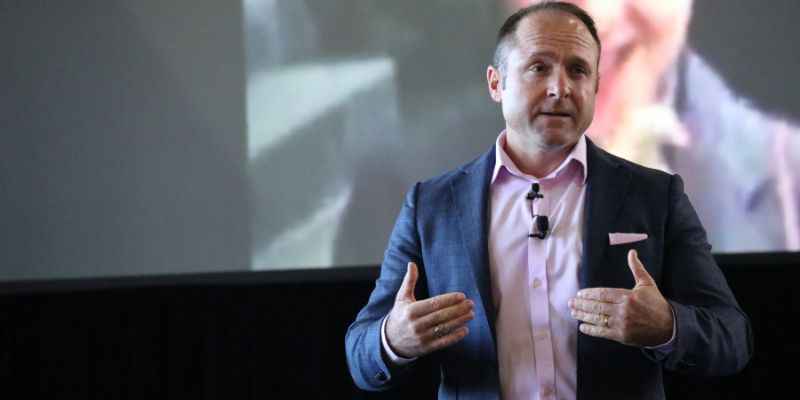Strategies For Beating Imposter Syndrome
In Part 1 of this series on imposter syndrome we’ve explored how common imposter syndrome is for so many people and some of the reasons it can be a part of your life. In this post I want to explore with you come insights and practical strategies that have helped me deal with imposter syndrome over many years.
How Journaling Can Help With Imposter Syndrome

In the previous post I shared the great insight from Carl Jung:
“Until you make the unconscious conscious, it will direct your life and you will call it fate.”
Carl Jung Tweet
If Jung was right and we need to make the unconscious conscious then journaling is a good place to start. I think there are other ways including music, prayer and meditation but for me journaling is as close as I have been able to get so far. The regular process of journaling seems to have a unique ability to help us get clear on what is really going on within us. In a digital world of emojis, reels and memes the act of writing is beginning to seem somewhat revolutionary. There just seems to be something powerful about the physical act of writing and the manner in which it can help us to identify not just our goals, dreams and aspirations but also our losses, pains, conflicts and uncertainties.
In the 13th century St. Thomas Aquinas made the following astute observation:
"The hand is the conjoined instrument of the mind."
St. Thomas Aquinas Tweet
He understood that there appears to be a special relationship between the act of writing deeply and its ability to help us come to see with greater clarity the forces that often roll under the surface of our daily lives. Is it the same as accessing the deepest recesses of our subconscious mind with psychedelic mushrooms on the slopes of a Peruvian volcano after a 20 day water fast? Probably not. But it is cheaper and less likely to concern your family.
Here are a few basic things I do to make journaling a rewarding experience.
1. I use really high quality journals. At present, I am using an A5 size lined and leather bonded journal from Moleskine that I really enjoy writing in. It’s got a soft leather cover and it opens flat so I can write to the ends of each page the way I like. I am fussy about this kind of thing. However, you do you! If you are happy enough with something more basic, then no problem. For me, having something a bit fancy is a cue that this is an important task and something worth valuing. It becomes something you learn to treasure.
2. I use really nice pens from Lamy and I am even more fussy about these than I am about the journal itself. In fact, if for some reason I cannot find where I put my Lamy pen then I don’t actually journal at all. There is no way I am going to mess up my streak. Every single line in my journal looks perfect and like the lines above and below it. I know I am now starting to sound like I have control issues but we are all on the spectrum somewhere, right? I think for me it’s not about some neurodiverse control strategy, it’s more that I just like it all to look beautiful. For me, it’s an aesthetic process as well as a cognitive and psycho-spiritual one. Make it look beautiful. Make it look like something you can be proud of. It will keep you coming back.
3. Use noise-canceling headphones with a brown noise generator. Yes, I take it that seriously. We live in the most distracted culture in human history. If you want to take journaling seriously then find a quiet place where you won’t be disturbed, put your headphones on and use your favorite music app or YouTube to find a brown noise generator. It is, apparently, much better than white noise for concentration. I use it all the time.
4. Try to avoid self-censoring. Try and convince yourself that you live with people who will never read your journals. My wife and I have a firm pact that if one of us dies we will never read the other person’s journal. Maybe this is a little self-protective. Who wants to find out after the funeral that your spouse thought you were a jackass? But seriously, try and allow yourself permission to tell yourself the truth…all of it. Use codewords or euphemisms for key issues if you really have to but try and make sure you have the freedom to be who you really are when you write.
Why use journaling to beat imposter syndrome?

Here’s what I have found. The act of giving time and space to journaling eventually leads to a level of insight and self-knowledge that seem hard to find elsewhere. There just seems to be this breakthrough moment when you have been writing for a while where you suddenly find yourself exploring some idea or feeling that you never intended to explore. This is what I think St. Thomas Aquinas was suggesting about the hand being the conjoined instrument of the mind. As we undertake the physical act of writing it seems the mind begins to process and offer us deeper insight than we experience in the frenetic pace of day-to-day life.
If you begin exploring your experience of imposter syndrome through journaling you may well find that it leads to other experiences in your life that may be impacting upon your current fears and anxieties. As Jung suggests, the goal is to begin to make conscious what is currently obscured or hidden. Journaling can help with this. You may well find that journaling helps you recall long-forgotten memories where you actually were rejected and what that experience was like at the time. At that point you may begin to realize that some of your current encounter with imposter syndrome is really an echo from the past resonating in your current reality. There is a certain power in knowing that. It gives you the ability to see that even though you feel afraid now, a lot of what you are experiencing is self-protective emotion trying to shield you from the fear of being re-traumatized.
In summary, journaling offers a lot. It slows you down. It makes you more conscious about your real life happening right now and not reacting endlessly to past wounds or dreading the fear of tomorrow. If it fails, I guess you could go and take those psychedelics in Peru but at least give journaling a try before you book your ticket.
Telling The Truth To Beat Imposter Syndrome

Fear grows in darkness. It diminishes in the light. The thing about imposter syndrome is that it’s a very private battle. We keep it to ourselves. Sometimes it seems to hover just out of view and we are not sure if we are really that plagued by it, so we press on. However, the anxiety hums away in the background.
A powerful way to beat imposter syndrome is to just drag that sucker out into the light. How? You begin to tell people about it. I suggest starting with your boss. If you are the boss then talk to your board. I mean it. Just make some time with a person who is senior to you in some capacity and tell the whole darn thing. Tell them exactly what the neurotic inner voice thinks and believes. Say something like:
“I just feel completely unqualified to be doing what I am doing a lot of the time. I am worried I am going to screw up massively and get fired.”
99 times out of a hundred any decent leader will listen to you and, if they know what they are doing they will gently suggest that together you go looking for evidence to back up your fears. I am big on this evidence piece. If I am coaching a senior leader dealing with imposter syndrome I ask them if we can go looking for evidence to back up the fear. I ask them to list all the ways in which they have failed or all the reasons they don’t deserve to be where they are.
Usually what happens at this point is people smile. They begin to actually see the gap between their irrational fear and the actual reality. They begin to see that their fear lies somewhere between unlikely to ludicrous. It is not going to happen.
It takes courage for you to actually begin to reach out and ask for some mentoring. It takes courage, real courage to ask someone above you on the organizational chart to listen to what scares you. But ask yourself, is sitting on your fear making it go away? Is trying to muscle through each day afraid of failing, adding value or joy or peace to your professional journey.
Just choose the right person, ask for their time and then tell the truth. The results will surprise you. As your fear comes into the light of human conversation and relationships with people who care about your progress then you will notice that imposter syndrome’s grip upon your daily life will diminish. A secret shared, with the right person at the right time, is a powerful thing indeed.
Often, just speaking our fears out loud to the right person does a great deal to diminish them. When you actually hear yourself articulating your fears, but then, with the help of a colleague or leader that you trust, you discover there is little or no evidence for your fear then imposter syndrome begins to lose its power. Remember this, fear grows in darkness. It diminishes in the light.
The Power of Service To Beat Imposter Syndrome

At the heart of imposter syndrome is fear. The opposite of fear is not simply courage. If being braver was the fast track out of imposter syndrome then we would find ways to grit our teeth and push on through. The opposite of fear in the context of imposter syndrome is actually love. If love seems incongruent with a professional context then lets call it service of others.
When we are gripped by the fear of being an imposter all our psychological and emotional energy is directed inwards. It is, essentially, a protective posture. We fear loss or exposure so we are self-protective. It makes a lot of sense. The way out is not more effort or ensuring you are seen as perfect. That is exhausting. The way out is what can be called a Copernican Inversion. Nicolas Copernicus was the first to articulate the idea that the earth traveled around the sun and not the other way around. A Copernican Inversion is a metaphor for a radical reappraisal of something that was always taken for granted. To beat imposter syndrome we need to move from self-referential fear to outward focused service.
The way this became real for me was caused by spending maybe 20 years as a successful speaker who always lived in fear. I was always afraid on stage of being exposed or shown up or that there might be someone in the room who was smarter than me. This led to a death grip of control and anxiety. I would work so hard to deliver a perfect performance and I needed to try and make sure I was always in control of the room.
This ended for me one day in St. Louis when I had to deliver a keynote to 10,000 people at the St. Louis Convention Centre. As I walked up on that stage I realized that the stakes were too high for any of my control strategies to work. I was given the grace at the moment to radically move from a drive to control to a desire to serve. I genuinely wanted to serve the people. I no longer wanted to impress them. I no longer wanted their approval. I just wanted to take whatever skills and experience that God had given me and place them at the service of people. It turned into one of the most extraordinary talks I’ve given so far. It all hinged on that simple yet radical transformation from fear and control to service and care of people.
If this seems too simple or not applicable to a professional context I ask you to really think it through. The most transformative and powerful ideas tend to be subtle or simple. At the end of the day imposter syndrome is fear based. You beat fear with love. You have to begin to switch from fear to a deep and consistent daily desire to serve the people around you. You have to just stay to yourself, “I no longer care if I get fired or lose my position. I am going to serve people.”
When you begin to do this your whole emotional architecture begins to change. It simplifies everything. You come at the whole process of your professional and personal life from a desire to serve. At this point, when you do this…I think you become almost invulnerable to people’s opinions.
This idea is also woven through the fabric of so many of the deepest spiritual and mythological stories of our various cultures. So often, something within us has to die for something much better to be reborn. What needs to die is your endless self-reliance and fear. What must be born in its place is a new and genuine desire to serve people and make their lives better. If you can do this from a place of authenticity then, by definition, you are being congruent with who you really are. At that exact point you can no longer be an imposter.
Beat Imposter Syndrome By Knowing Who You Really Are

Jamie Kern-Lima is an incredibly successful business founder but she is also deeply concerned about helping people to grow and flourish in life. A few years ago she said something that has a significant impact upon me. It was this:
“You do not rise to the level of your goals and dreams. You fall or plateau to the level of your identity”
Jamie Kern-Lima Tweet
Ultimately, it seems we get in life what we think we deserve. This is an uncomfortable truth. Our current culture is victim and blame oriented. We seem to endlessly want to find external reasons for our unhappiness. What Jamie Kern-Lima is suggesting here is going to be hard to accept for a lot of us. It was hard for me the first few times I thought about it.
If you think you are inadequate then it seems that your life will tend to organize itself around that belief. If our deepest beliefs about ourselves are fractured in some way then it can be very difficult to attain the results we desire. We are likely to keep defaulting to our most deeply held sense of self.
Once again this is touching on the quote from Carl Jung about making the unconscious conscious. It is not straightforward work. To be honest, shifting our sense of self, especially if it has been damaged over the years, can be one of the hardest things we ever attempt. It is hard but it is not impossible. Let’s look at how we can actually do it.
The Ultimate Strategy For Beating Imposter Syndrome

If Jamie Kern-Lima is right, and I think she is, then the most strategic thing we can do to overcome imposter syndrome is to work with our sense of self. Ultimately, imposter syndrome is a problem of self-perception. It’s a problem caused by beliefs about ourselves that undermine our desire to grow, to do well, to be successful and to serve others.
So how do you actually shift self-perception? Well, it seems to depend on whom you ask. Some people will suggest that you need to write affirmations or list all the times you have been successful. Some will suggest therapy or even assertiveness training. The options are probably endless but ultimately I think that the ability to change your self-perception is a spiritual task.
It’s a spiritual task because what healthy spirituality does is place you in a different story. It places you in a story where you were created on purpose and for a purpose. It puts you in a story where not everything depends on you. There is grace and even the possibility of the occasional miracle.
You cannot be an imposter if you were created to be who you are. You can only be an imposter if you spend your life trying to be someone else. If there is a God and this God created you then they knew what they were doing. The cosmos is too complex and perfect and dazzling to try and tell yourself that you were the only mistake that was made.
If you begin to open yourself to this possibility then you can come to find your place in the world. You are made in the image and likeness of God. You are sustained in existence at each moment by a force greater than yourself. No matter what happens to you, you are being carried. You are also a creation of God as precious and important as every other person who has ever lived. You don’t have to endlessly defend your existence, your status or fight so relentlessly for your own happiness.
The plateau of identity you want to fall to has to be authentic and it has to be compelling. You don’t have to fearfully strive to be something more than what you already are, a child of God, a unique and unrepeatable human person with unique and unrepeatable gifts. You are meant to be here. You are not an imposter when you finally come home to yourself and settle into being who you really are. At that point, if people don’t like you or even if they fire you, that does not change your true identity. Honestly, I think this is about the only way we are ever going to find anything resembling authentic peace and I think it’s also the most effective strategy for overcoming imposter syndrome. Would it not be good news for you to realise that not everything depended upon you. Would it be good news to know that your identity is bigger than where you work?
My friend, you are not an imposter if you keep pressing into who you really are and then learning to relax into it. It’s just too exhausting to try to hold it all together on your own.
There is a beautiful line from the Bible that can offer a lot of hope:
For I know the plans I have for you,” declares the Lord, “plans to prosper you and not to harm you, plans to give you hope and a future.
Jeremiah 29:11 Tweet
What’s next?

If you have found some of the ideas in these posts helpful then please reach out and let me know if I can help you further. I deliver a wide range of speaking, training, conference seminars and keynotes, consultancy and other services as well as private executive coaching. Just send me a message through the site and I’ll be in touch.
I pray that you find peace and beat the power of imposter syndrome. You have so much unique potential and the world needs it.
Blessings to you.
Jonathan






